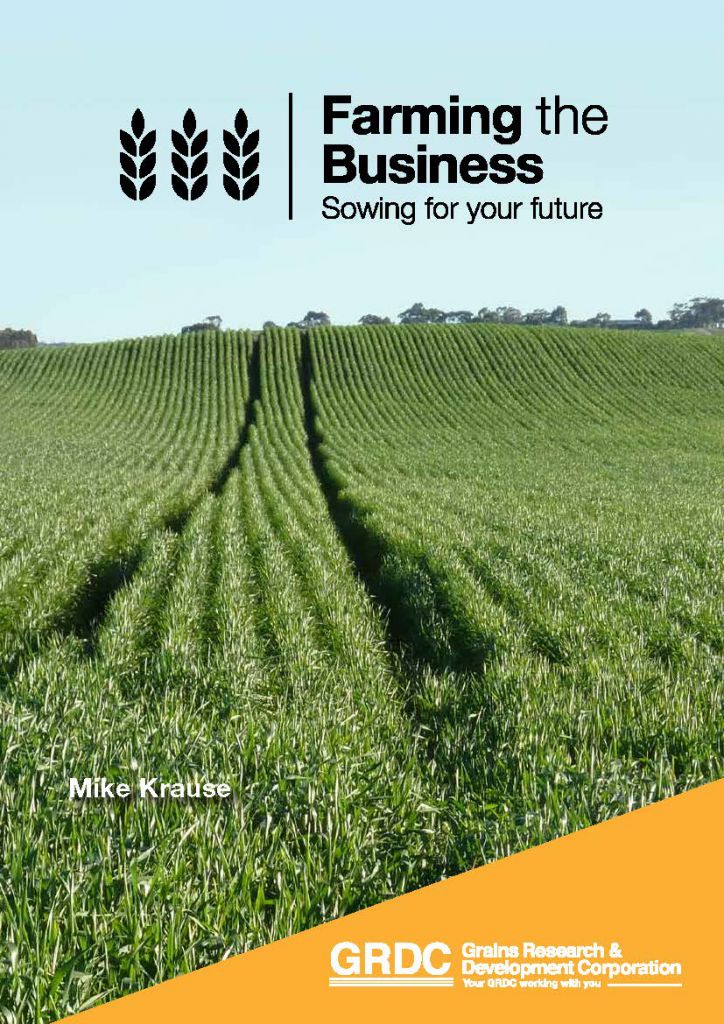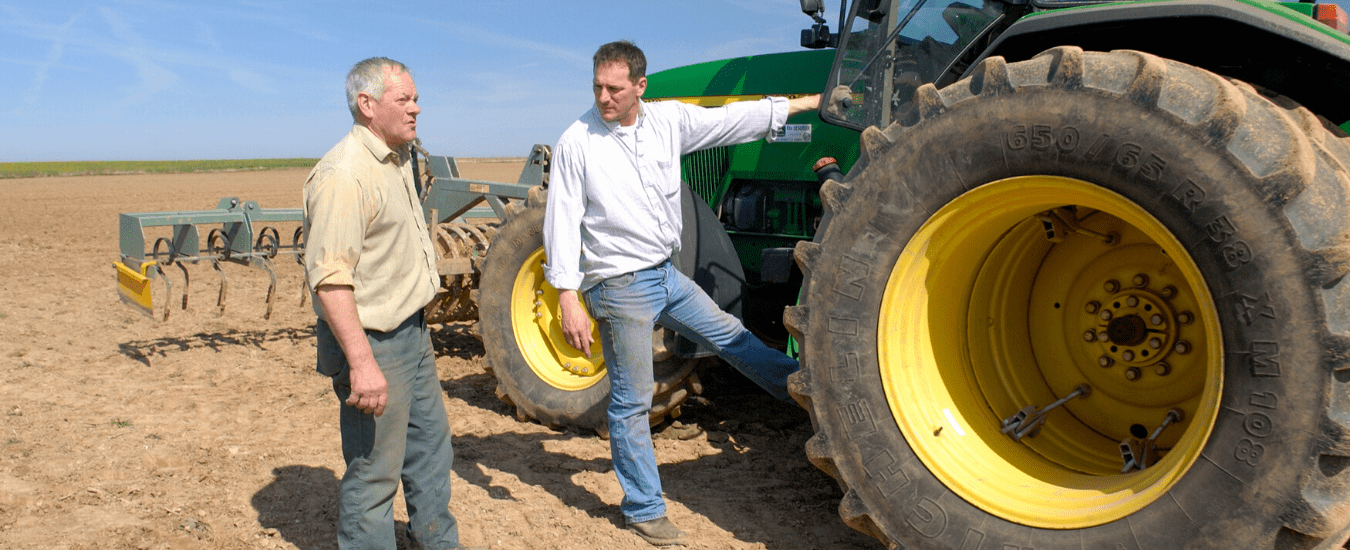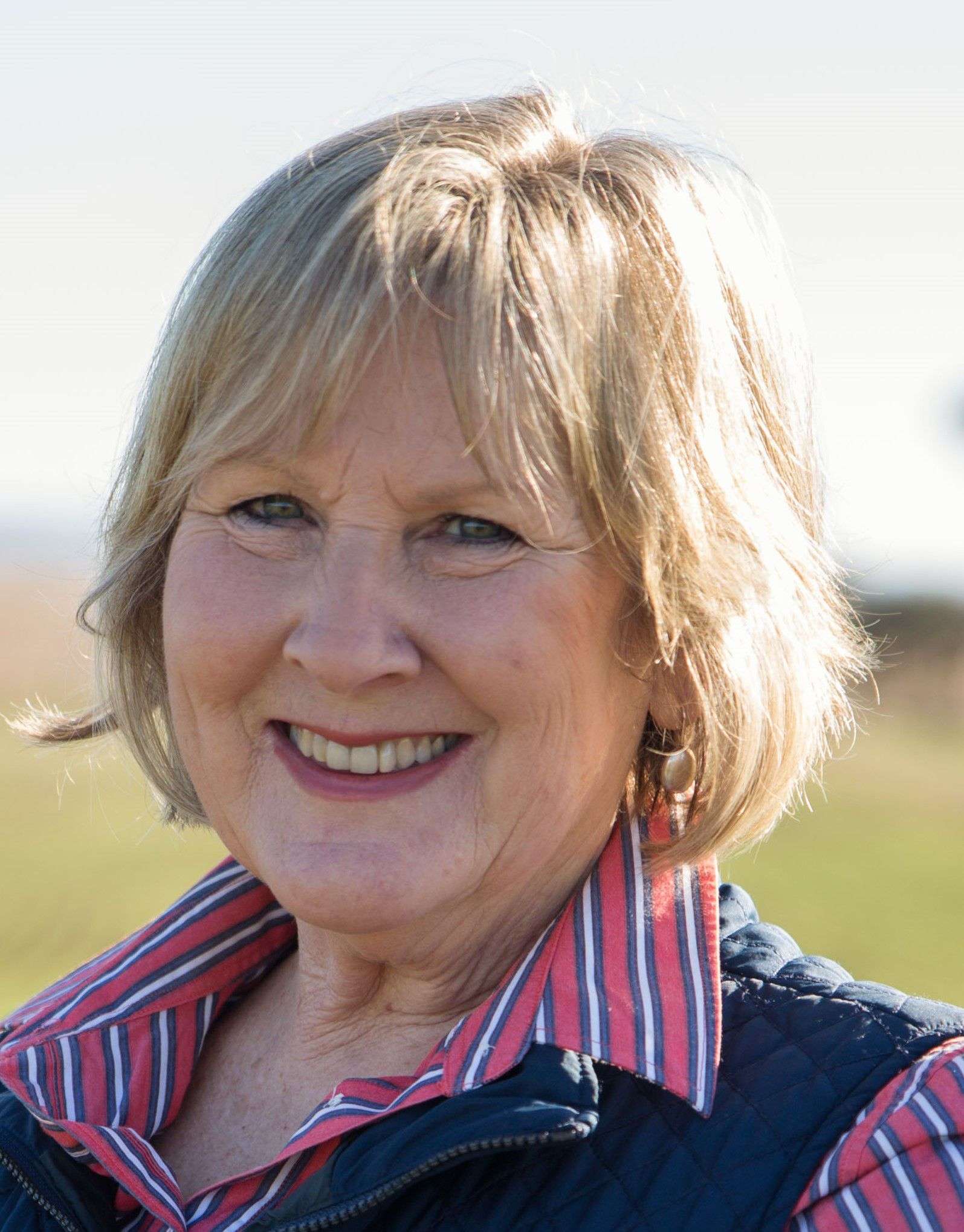If you’re a young farmer who is currently involved with the family business – or hoping to be in the future – you might be aware that succession planning will play a big part in your future on the farm. It also might be something that you avoid thinking about too much, let alone actively work towards.
This is understandable as succession planning can be an uncomfortable topic. It isn’t only about business planning – family relationships and emotional connections to the land and the lifestyle are also major factors. As the younger generation, it can be easy to assume that the older generation will take charge and lead the way in formulating a plan. But this isn’t always the case and if both parties make a habit of avoiding difficult conversations, it’s possible that you could be in for an unpleasant surprise once the topic is finally discussed.
Mike Krause, CEO and founder of P2P Agri, has over 30 years’ experience in Farm Business Management and has acted as a third party advisor in developing succession plans for many Australian farming families. We recently spoke to him to find out why succession planning is so important and how we as young farmers can best approach the process.
Why is succession planning important for future business success?
Succession planning, or more recently called ‘transitional planning’, is important if the family farming business is being passed onto the next generation or other family members. Usually the younger generation wants stability and to know that they will be the farmers into the future, whilst the older generation wish to be financially secure into their retirement age.
A good plan will hopefully guide both the (1) management and (2) assets transfer between generations, so that the mutual goals and aspirations of those in the business can be met. If this is not done well, the risk is that the farming business will fail and require selling, meaning the farm is not passed on as hoped.
I trust my parents. Why is it important for me to be involved in working towards a succession plan?
Yes, hopefully we all trust our parents! However, if the plans and hope for the future of the farm are not talked about, the hopes of the next generation are based only on assumptions. These assumptions may not be correct. Hope is not a strategy!
It is far better to talk through the issues, so that all parties make explicit their intentions and take responsibility to work toward achieving those aspirations. While the older generation may have the management and assets, the younger generation need also to be in the know and take on their own responsibilities.
What are some key things I should consider/ questions I should be prepared to answer before entering into discussions with my family?
It would help the older generation to know if you (the younger generation) wish to become the next generation of family farmers. If you are uncertain, then the plan needs to be flexible until you know what you wish to do with your life. However, the older generation will want to know when you can make that decision.
Do you want a more formal education in farm business and agricultural technology, so you can prepare yourself for managing the business? How and when might this happen? There are other questions, but you will need to answer the first one, before you focus on these later questions.
What if we make plans too early and things change? (For example, due to illness or relationship breakdowns).
A succession plan is an evolving process, not a one-off. The key is to start this process and don’t put it off. It is suggested you have a family meeting process to kick the plan off. Once the plan is made, then it should be reviewed every 2 – 3 years to cater for changes in the family, as it is inevitable that there is change. However, if intentions are well mapped out, plans and progress can be reviewed to ensure that the overall goals are achieved.
What are some strategies I can use to approach the topic with family members who would rather avoid the issue?
Firstly, start talking about what the succession plan is with Mum and Dad. Don’t expect they know all the answers; just allow the conversation to start. Try to come to this topic from their perspective, rather than just focusing on your needs. This way they will see you are trying to help them with their concerns. If they feel helped, they are more than likely to want to help you too!
If they are happy to explore further, the best strategy is to have a capable third-party facilitator help with this process. These people can help address ‘any elephant in the room’ when other family members find it difficult to talk about these important issues.
What if our family is struggling to work through these issues on our own?
It is natural to struggle with these issues. There may be family issues and dynamics of the past that are preventing logical and rational discussion about succession planning. If this is the case, then we recommend you bring in a third party who is a good listener and helps create an environment of collaboration so that these difficult issues can be talked through and each family member is heard. This ‘third party’ could be your family accountant, or lawyer or a farm business consultant.
Key Messages
● Succession or transitional planning should form a key element of any farm business planning if you are looking to take over a family farm.
● While it can be a difficult and complex topic to approach, it is one that is best tackled sooner rather than later. Whether you are at the stage of approaching your parents to start the discussion, or if it’s time for you to sit down and map out your personal goals, now could be as good a time as any to get the ball rolling.
● Remember, “Hope is not a strategy!” and if family dynamics get in the way of productive discussion, having a third party to mediate can offer a way forward.
Now is the time to sharpen your farm business tools for securing farm finance as credit may be more difficult to access as a result of the Banking Royal Commission.
Mike Krause is one of Australia’s leading Farm Business Management consultants with significant experience in providing farm business management support, training and consulting to Australia’s agricultural and agri-business industries.

This experience forms the basis of significant developments:
‘Farming the Business’ manual Mike produced for the GRDC.
‘Plan to Profit’, the successful desktop software developed and sold by Mike over 12 years.
P2PAgri, our new online platform for farmers and advisers. Check it out on www.p2pagri.com.au.



Leave A Comment
You must be logged in to post a comment.